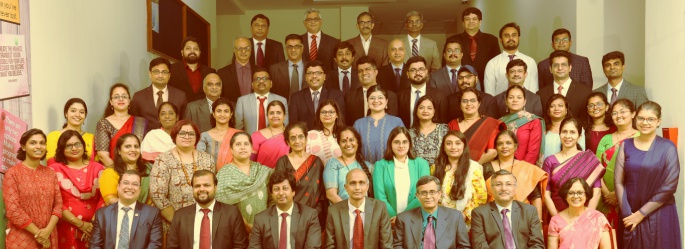B-Schools all for sustainability

Publication: The Hindu Business Line on Campus
Edition: National
Page Number: 04
Date: 22.07.2021
Circulation: 1,08,000
Author: Prof Muneza Kagzi
Business schools play a crucial role in society by shaping the outlook of future business leaders. In addition to imparting knowledge, they prepare managers to make conscious decisions and examine the implications of business actions. Many businesses have realised that the traditional paradigm of focusing solely on the purpose of earning profit alone will no longer bring benefits long term.
The changing business environment with uncertain ecological realities and regulatory pressures to consistently report on the business impact on the Environment, Society, and Governance (ESG) has led to this epiphany. Furthermore, there is a growing demand to know a firm’s ethical business conduct both from shareholders and customers. In the age of immense competition, businesses can gain competitive advantage by creating a brand image of responsible businesses. The central idea behind which is to optimise stakeholder value through community engagement.
B-schools are undergoing a shift from teaching management courses focusing on profit maximisation to embracing the holistic idea of positive business impact on the planet (environment) and people (society). They are coming up with broad ranges of sustainability-related courses
Integrating sustainability into the curriculum
B-schools are teaching courses that provide knowledge of Triple Bottom Line (TBL), which proposes that a business is successful if and only if it creates a positive impact based on three factors — profit, people and planet.
Many B-schools have designed sustainability courses by complying with Principles for Responsible Management Education (PRME) initiated by the United Nations. PRME engages business and management schools to ensure they provide future leaders with the skills needed to balance economic and sustainability goals, while drawing attention to the Sustainable Development Goals (SDGs) aligning academic institutions with the work of the UN Global Compact. B-schools are also introducing the idea of how business innovation utilising Artificial Intelligence (AI) or Machine Learning (ML) can promote green business practices.
Along with this, students are introduced to the emerging concept of ‘Responsible Businesses Practices’. Through case studies, B-schools are teaching how managers can design the entire value chain utilising resources and saving costs, benefiting not only the company but also the society. These measures include utilisation of waste, adoption of renewable energy such as solar, promoting innovative manufacturing processes, and implementing CSR initiatives.
Regulatory requirements
Students are also equipped with legal requirements for business operations. This is important because organisations such as the Securities and Exchange Board of India (SEBI) have proposed that the top 1,000 listed companies report the impact of business on ESG in the Business Responsibility and Sustainability Report (BRSR).
Another important regulation is the mandate on CSR for listed companies meeting specific requirements as per Companies Act 2013. .
Experiential learning
Many B-schools have adopted experiential learning methods which involve students doing the work, and learning by observing and interacting with their social contexts. They have designed student-centred activities and courses for such experiential learning.
Students are asked to design responsible business plans that can create a win-win situation where businesses make sustainability profitable. They are also encouraged to debate over the successful practices and challenges in implementing responsible management practices such as utilisation of waste through a circular model, improving packaging and product quality for consumers, and investing resources for CSR in various companies.
Even project-based courses that introduce students to the live functioning of NGOs, social enterprises, and individuals creating or attempting to create superior societal and environmental value contributes to experiential learning. Through project-based courses, students actively explore opportunities to connect small-scale producers to mainstream value chains, to apply modern management principles in different functional areas, to decrease operational inefficiencies, improve top-lines, introduce the use of information and communication technologies (digitalisation) and improve overall business health of the beneficiary.
Sustainability and entrepreneurship
Along with the above courses, B-schools also have courses promoting entrepreneurship in the domain of sustainability. Many social problems can be solved by designing affordable innovative solutions. The courses such as social entrepreneurship have attracted a lot of interest among students. Management schools have developed special entrepreneurship cells and labs to provide funding and guidance to promote the social entrepreneurship ventures.
The sustainability challenges and competitions conducted by B-schools also provide a platform for students to participate and explore the learning of ESG-based solutions for business.




